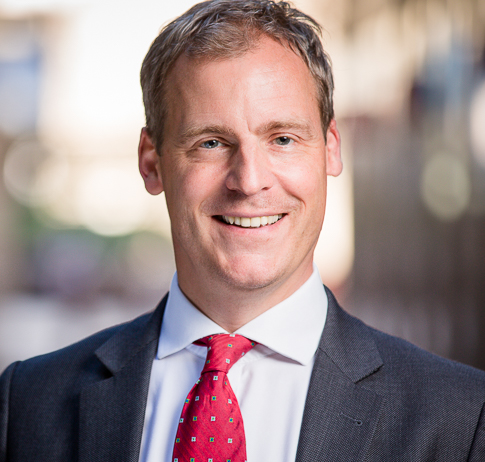In May, the High Court made declarations relating to the historic governing documents of the Greek Orthodox Cathedral in Bayswater, London.
A dispute had arisen between the trustees of the charity running the Cathedral (the 'Cathedral Trust') and the trustees of a related charity (the 'Cemetery Trust') that organises the burial of members of the Greek Orthodox Church.
The trustees of the Cathedral Trust commenced court proceedings because they were concerned that the trustees of the Cemetery Trust were administering their fund contrary to the historic governing documents.
Steven Kempster and Olivia Turner instructing Matthew Smith (of Maitland Chambers) acted for the Cathedral Trustees in securing favourable declarations.
Background
Early in the nineteenth century, members of the Greek community in London established the Cathedral Trust to own a Cathedral.
In 1860, the Cemetery Trust was created by a separate deed entered into for the purpose of acquiring and holding land to be used as burial grounds for members of the Cathedral Trust.
The 1860 trust deed expressly stated that the operation of the Cemetery Trust was subject to 'such rules and regulations as the … Greek Community in London shall from time to time by order of their seal direct'.
A Declaration of Trust made by the then Cemetery Trustees in 1935 (the '1935 Declaration') supplemented the provisions of the 1860 trust deed by giving 'the Greek Community in London' a power to direct the application of any monies held by the Cemetery Trustees from the sale of graves and vaults.
Over the years, the Cemetery Trustees had accumulated a surplus of over £1 million through the sale of burial plots.
However, when the members of the congregation of the Cathedral Trust (now collectively known as the 'Assembly') gave directions to the Cemetery Trustees in 2014 as to how they should invest the surplus funds, the Cemetery Trustees refused to follow those directions. They asserted that the Assembly was not the 'Greek Community in London' referred to in the 1860 trust deed.
They also said that 1935 Declaration was invalid as it was unnecessary to supplement the 1860 trust deed.
Although the Cathedral Trust and the Cemetery Trust had operated harmoniously for over 100 years, and were registered as connected charities, the Cemetery Trustees formally 'de-linked' their charity from the Cathedral Trust.
The Cathedral Trustees commenced proceedings seeking declarations relating to the governing documents of the Cemetery Trust and the powers belonging to the Assembly on the basis that it was the modern-day incarnation of 'the Greek Community in London'.
Issues
The first issue was whether the phrase 'Greek Community in London' in the Cemetery Trust's governing documents referred to what is now the Assembly of the Cathedral Trust.
The Cathedral Trustees pointed to historical documents suggesting that the 'Greek Community in London' was synonymous with the Assembly.
For example, the Cathedral Trustees relied on a letter from the Assembly to Queen Victoria on the occasion of her Diamond Jubilee in 1897 which described the Assembly as 'members of the Orthodox Greek Community established in this Country in the commencement of the present Century'.
The Cemetery Trustees asserted that the 'Greek Community in London' was a separate formally constituted society that was dissolved sometime around the time of the Second World War.
The second issue was whether the 1935 Declaration, which bolstered the authority of the 'Greek Community in London', was in fact effective.
The parties both relied on historic evidence ranging from the 1800s to the present day. For example, the 'Greek Community in London' was formed by merchants and traders arrived in London from the island of Chios who had been forced to leave their homeland after the Massacre of Chios in 1822 (during the Greek War of Independence from the Ottoman Empire).
The arguments in favour of the validity of the 1935 Declaration were that:
- It was created to plug a gap in the 1860 trust deed which was silent as to the use of any surplus income.
- The 1935 Declaration had been treated as valid by the previous sets of trustees, their lawyers and by the Charity Commission for over 80 years.
The current Cemetery Trustees (with the exception of one of them) had all been appointed under deeds that expressly recited the trusts of the 1935 Declaration.
Decision
The Judge held that the Assembly of the Cathedral Trust is the 'Greek Community in London' as referred to in the Cemetery Trust governing documents. He described the evidence to the contrary advanced by the Cemetery Trustees as 'fanciful'.
Therefore, the court declared that the Assembly has power to direct the Cemetery Trustees as to their spending or administration of their surplus funds.
It followed that the Cemetery Trustees were wrong to reject the Assembly's 2014 direction on this basis.
The Judge concluded that the 1860 trust deed could be interpreted in a way that covered the income arising from the land subject to the trusts declared in that document.
Accordingly, the 1935 Declaration was unnecessary and was invalid.
Given that the Assembly, being the 'Greek Community in London', was confirmed as having authority deriving from the 1860 trust deed, the invalidity of the 1935 Declaration was immaterial to the substantive outcome of the case.
Finally, and on the basis that the application brought by the Cathedral Trust was important to clarifying the correct operation of the Cemetery Trust, the Judge ordered that the trustees of the Cemetery Trust should pay all parties' costs from the surplus funds they held.


